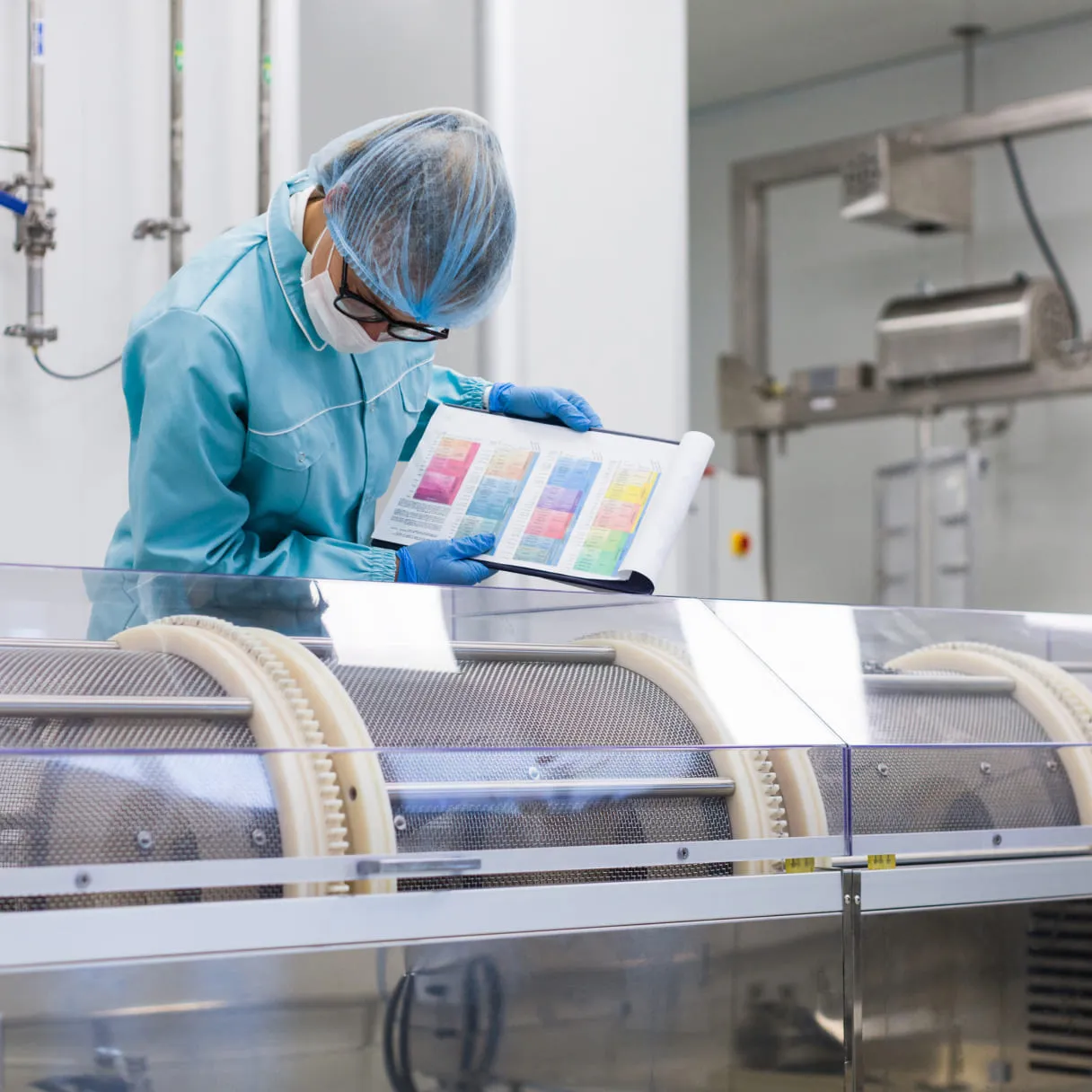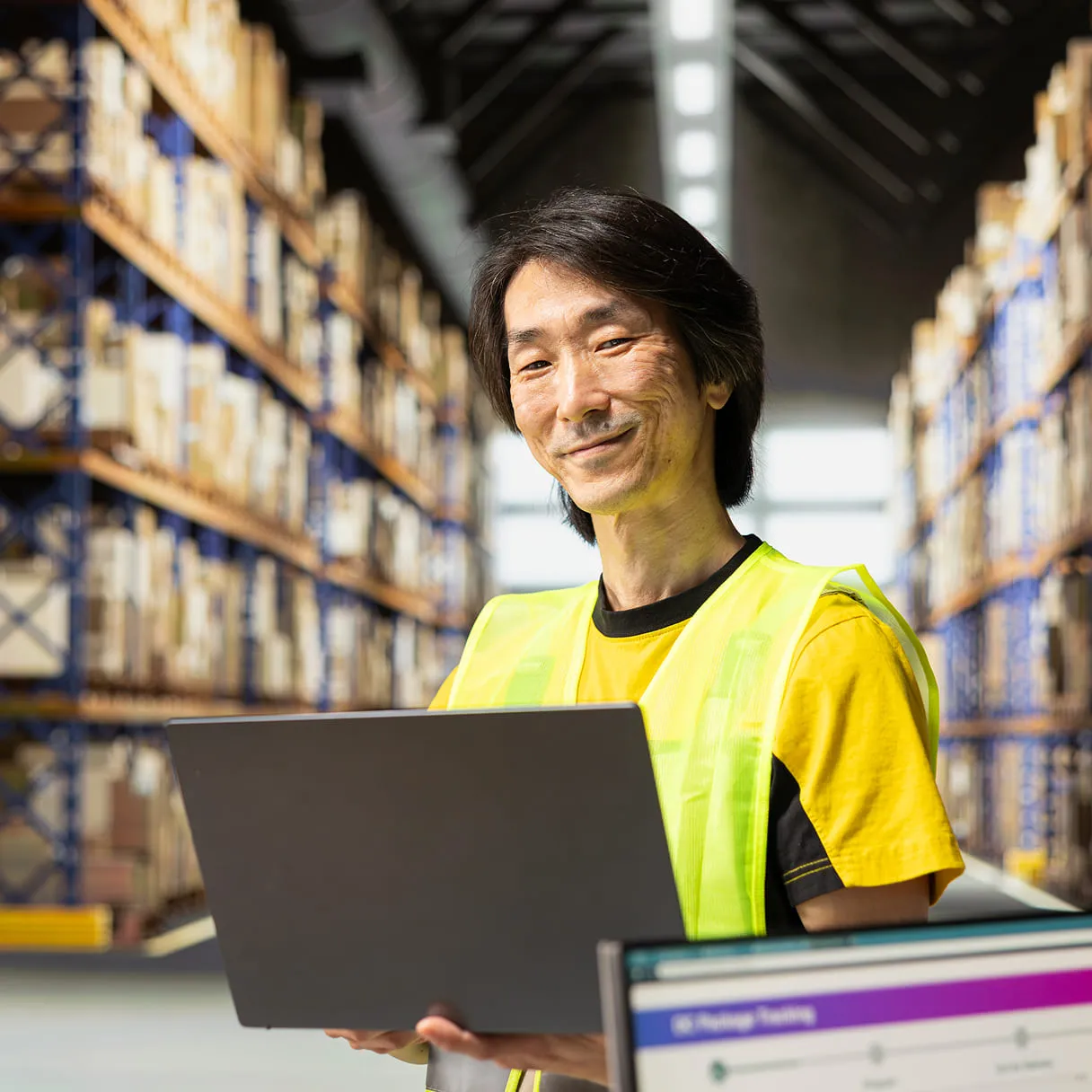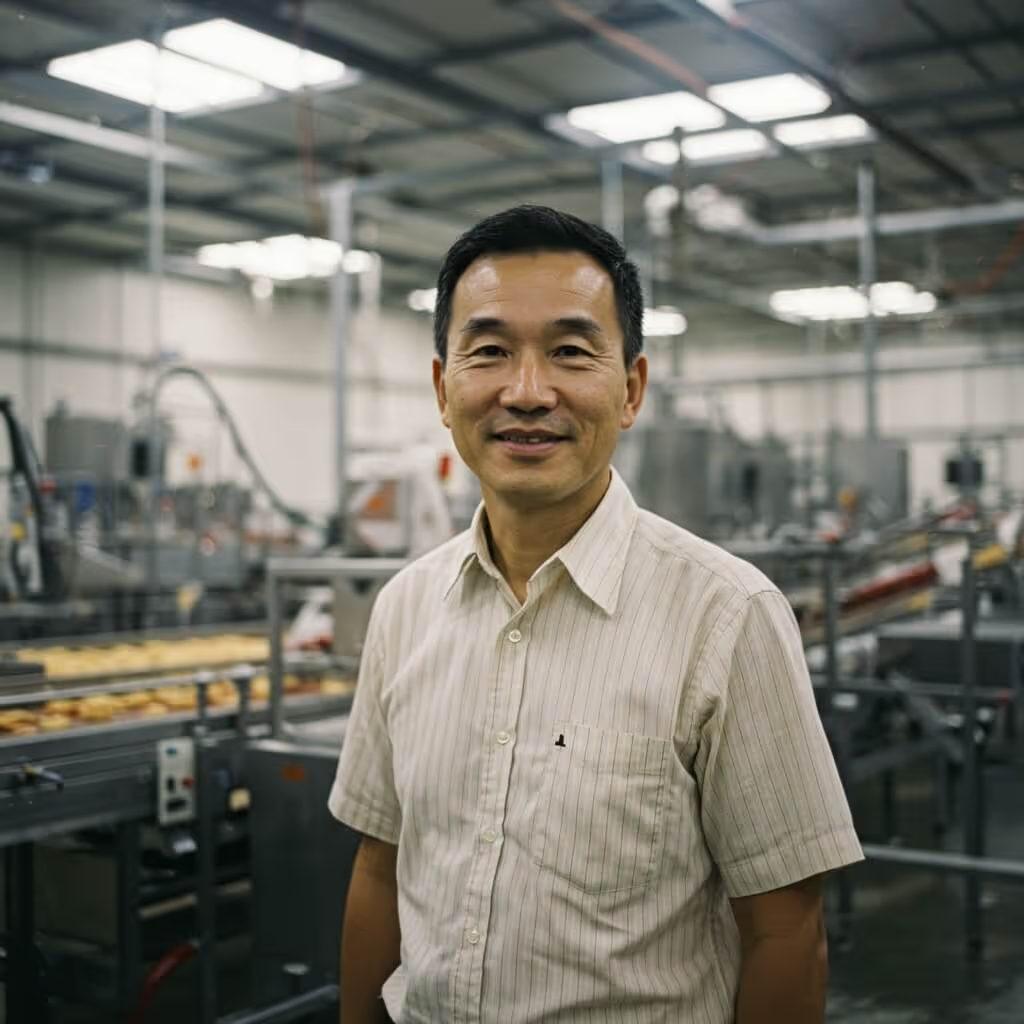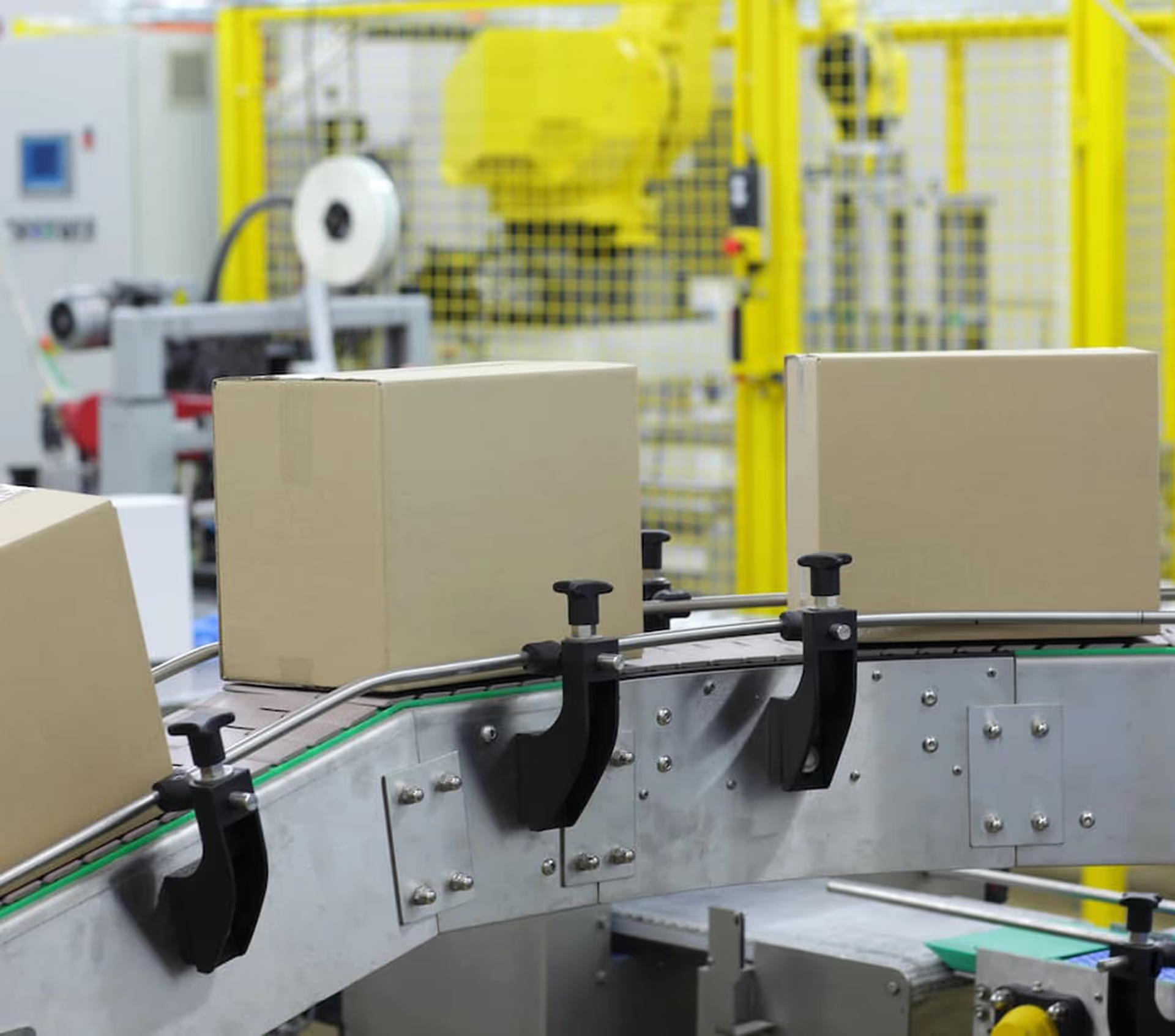How To Buy Direct From China: Beginners Guide 2026

A Step-By-Step Process To Buy Goods From China
STEP 1: Performing Due Diligence on Suppliers
Due Diligence Check List
- Reach out to 30-50 suppliers on Alibaba
- Assess supplier responsiveness
- Gather information on product availability
- Order samples from multiple suppliers to compare product quality
- Compare factory prices
- Compare MOQs and see what kind of flexibility they have with MOQs
- See which factory has a stronger engineering team and the capacity to expand product offering
- Request videos of each factory candidates QC process and equipment
- Provide sample feedback to factory candidates and assess how they answer product improvement questions
STEP 2: Preparing the Factory Order
Order Preparation Check List
- Confirm with the supplier any product quality issues that arose during the sampling process and see if any improvements can be made during mass production
- If you’re struggling to decide between suppliers because the product quality and price is the same, try doing google searches on the suppliers to find any negative reviews about them
- Ask the supplier for tiered pricing based on ordering different volumes. This allows you to understand how much money can be saved by ordering larger quantities
- Ask the supplier if you can place a deposit on a larger quantity order and pay the balance as production batches finish. This will allow you free up cashflow
- Find out from the manufacturer what the standard lead time is if the MOQ is ordered. Then ask the factory how you can achieve a lead time in half the amount of time.
- Ask the supplier for a production schedule so you can follow each phase of production
- Provide the supplier with your forecasted sales and your estimated future order dates so that you can negotiate more flexible payment terms
- Confirm with the supplier how defects will be handled on subsequent orders
- Finalize payment details with the supplier so that you’re successfully wiring the deposit to them
STEP 3: Producing the Product
Production Management Check List
- Ask the manufacturer for updates based on the production schedule provided to you
- Ask the manufacturer for design proofs of both the packaging file and product file with logo measurements on the product
- Make sure you have bar codes on your packaging. Makes things easier for your fulfillment company
- Confirm the master carton details. Make sure you list the product name, quantity, box measurements, and weight of the box. Makes things easier for your fulfillment company
- Provide the manufacturer with shipping instructions so that they can prepare the shipment of the order well in advance
- Request pictures and videos from the manufacturer when raw materials arrive the factory
- Request videos from the factory when they perform the quality control process
- Nudge the factory to complete production earlier than the estimated finish date
- If you place a large quantity order for the first time with the factory and you don’t have physical presence in China, hire a 3rd part inspection company to perform QC on your behalf
STEP 4: Shipping, Customs Clearance and Delivery
Shipment Preparation Check List
- Collect shipment measurements and weights from the manufacturer. That will allow you to get quotes from different logistics companies
- Send shipment details to logistics companies to get quotes on air freight, sea freight DDP, and standard sea freight
- Compare both pricing and transit times with the shipping quotations
- Work with the logistics companies on applying for cargo insurance
- Make sure after the manufacturer completes production, they provide you with a commercial invoice and packing list
- Follow up with your logistics company during the shipment on a weekly basis to get delivery updates
- Make sure to give delivery updates to your 3PL in the US so that they can be prepared to receive the shipment
- Confirm with your 3PL all goods are accounted for. If anything is missing in the shipment, check with the logistics company and contact your factory that you have items missing
Benefits of Buying From China
Lower Costs (Production, Labor, and Assembly)
Lowering costs is front and center for any business, and buying from China offers a unique opportunity to decrease expenses while scaling. General production, labor, and assembly costs are all dramatically lower in China. Even with the new Trump tariffs, buying products from factories in China is still cheaper. Buying overseas may feel intimidating, but partnering with someone like Kanary can make it easy and highly profitable.

High Output in Less Time (Scalability)
Costs can delay scaling, but long timeframes can put a damper on exciting growth. The manufacturing industry in China is well-developed and equipped to help a variety of different businesses quickly and easily scale. Factories in China tend to be more flexible with MOQs and offer consistent lead times compared with factories in the Southeast Asia.
Many e-commerce brand owners think because of the new Trump tariffs, they can quickly switch manufacturing to Southeast Asia, however, factories in that region tend to have higher MOQs and longer production lead times because a lot of the raw materials still need to come from China. On top of that, the infrastructure is less developed and the remote areas where the factories are located sometimes have power outage issues. Buying from factories in China gives you the most flexibility when it comes to MOQs and having consistent lead times.

Product Customization
Your business won't be pigeon-holed into a limited product selection. Manufacturers in China are often experienced with customizing existing products to fit your specific needs, and certain factories can help develop unique product prototypes. Kanary has a deep understanding of what factories specialize in specific product customizations, making it easy to find the perfect match. If you are working with factories in China directly, its important that your manufacturer has a strong engineering team in order for them to come up with solutions to improve your product quality.

Fulfillment is Advanced
China is the most advanced when it comes to fulfillment for e-commerce businesses. Shipping rates from China are more competitive than if you kept your inventory in the US and had to ship online orders to Europe. The shipping transit times are faster from China too. If you manufacture products in China, you can send your inventory to a fulfillment provider in China and immediately start selling. China fulfillment gives you the most opportunity to sell in different country markets while also launching new products very quickly.

Common Mistakes When Buying From China
Not Understanding Cultural Differences
(Communication)
Language and culture barriers present challenges to e-commerce businesses looking to source products from China. Not sharing a common language will make negotiations difficult and can cause problems with communicating product specifications or customizations.
Its very common for suppliers to have difficulty explaining problems that occur during production, such as defect issues or production delays. Don’t get too angry with your suppliers or else they’ll be less interested in helping you. Just keep asking questions in different ways to make sure they understand you and you’re getting to the bottom of things. Kanary has a team of bilingual experts to ensure that negotiations are precise and that product needs are delivered clearly.

Choosing Products Based on the Lowest Price
Businesses will face the temptation to seek the factory that offers the lowest price, but this is often a huge mistake. China manufacturers offering the lowest price often lack professionalism and cut corners on product quality. On some occasions, factories offering the lowest price may be located in a region that dramatically increases shipping costs, which will wash away any savings without adding any benefits.
When we assess factory options for e-commerce brand owners or dropshippers we work with, we request samples from as many credible suppliers as possible. After we narrow down options based on product quality, we then assess the factories responsiveness, product knowledge, production lead times, and finally price. Factory responsiveness and product knowledge are significantly more important than selecting a supplier based on price.

Starting An Order Before Receiving Samples
Even if you find a reliable manufacturer, starting mass production before seeing samples is a common, and costly, mistake. Your product could have design flaws or problems, and your manufacturer may make mistakes in following your parameters. The sampling process offers proof that your design works and that the factory understands your specifications. It's always best to order samples from multiple manufacturers in case one of the suppliers sends you a poor quality sample.
Kanary knows how to expedite the sampling process to make sure the factory is ready for mass production without wasting unnecessary time with communication issues or shipping delays around your samples.

Slow Responses To Your Supplier
Most e-commerce DTC brand owners think they can just pay their China supplier and stop paying attention to production so that they can solely focus on marketing and scaling. However on many occasions, especially when manufacturing skincare or supplements, the supplier has a lot of details to confirm. If you’re slow to respond to them, it will delay production. In some cases, the factory may pause production and work on producing another clients order, which would create significantly longer delays. Always be in communication with your manufacturer in China and make sure you’re putting the ball in their court.

What's The Difference?
Factories, Trade Companies, Dropshipping Agents, and Sourcing Companies
Factories
- Direct source
- Lower price, higher MOQs
- Collaborate on product creation or product customization
Different size factories have different advantages:
- Small (Eager for business)
- Medium (Better pricing and resources)
- Large (High capacity)
Trade Companies
- Offer more product variety for specific categories
- Have better quality inspection services than factories in some cases
- Less communication issues than working with factories
- Easier to work with if you can only buy low volume. Many Ali Express vendors are trade companies.
- Collaborate on product creation or product customization
DropShipping Agents
- They can both source and fulfill products for ecommerce businesses under one roof
- They can source products at lower MOQs
- They can source in many product categories
- Product sourcing lead times can be faster when they source existing inventory from trade companies
- They can get you pricing for products quickly
- Quick online research
- Pull prices from suppliers’ online stores (kind of a disadvantage)
- They can provide more product pricing options than a trade company

Sourcing Companies
- Strong Due Diligence Capabilities; Product Manufacturing Research that specializes in a variety of industries
- Interests are aligned - functions as a representative of the brand
- Saves brand owners’ time
- Can problem-solve on behalf of the brand
- Having the capability to negotiate pricing and payment terms on behalf of the brand
- Better Quality Control - Visits the factory on behalf of the client to make sure they are not cutting corners
- Sourcing Companies may be able to offer better payment terms than the factor
- Has the capability to help brands find new products that solve defects or return problems from older products they sell
- Can help brands develop a product portfolio
Need Help Buying Direct From China?
Click below to get in touch with Kanary's team of product sourcing experts
Buying From China FAQs
How Do I Buy Direct From China?
There are a few strong options when choosing exactly how to order from China: The safest way to buy directly from China is to use a sourcing agent like Kanary. There are other alternatives to identify suppliers through platforms such as Alibaba, DHgate, Made-In-China etc. However, using a company like Kanary, who has relationships with suppliers developed over many years, is going to be your best option. China sourcing companies like Kanary can work with the factories on your behalf to optimize pricing and lead times to keep cash flow lean and production flowing.
Can I Trust Buying Products From China?
Yes, but if you are not using someone like Kanary to help you then it is best to be cautious and ask a lot of questions. You should never feel like you are asking too many questions to a supplier. If you are not using a sourcing company, then you might need to go to China yourself to evaluate the factory and engage with third party QC companies for regular production checks.
If the supplier doesn’t answer all of your questions or is trying to rush you through the purchasing process, then it is recommended not to use the supplier. They may be trying to scam you, or there is a good chance you will be unhappy with the quality of your finished product. Make sure your requirements are clear from the beginning and don’t settle for less. Remain patient and keep an open mind when communicating directly with factories, the language barrier can be difficult to work through. That’s why it is recommended to work with a sourcing company like Kanary to have a “boots on the ground” approach.
Is Buying Direct From China Safe?
Using a company like Kanary with our many years of experience and relationships in China means never having to ask "is it safe to buy from China?". If you are not using a sourcing agent, it would be recommended to use legitimate payment methods for purchasing, such as Paypal or Alibaba Trade Assurance. Make sure the quality standards are clearly communicated before any orders are placed. You also might want to engage in a Manufacturing Agreement with the supplier to outline clear responsibilities and liability issues.
What Is the Best Way to Buy Directly From China?
The best way to buy directly from China is to use a company like Kanary. The years of experience and strength of long-term relationships built with suppliers is priceless when it comes to the sourcing process. They can offer services like supplier negotiation for pricing, quality control, lead time and production management and much more to allow you to focus on growing your business instead of worrying about supply chain management.
What Are Useful Tips to Buy Directly From China?
When buying directly from China, you should
- Figure out which products you want to purchase before communicating with suppliers. This includes quality standards, materials needed, packaging requirements and branding or customization opportunities.
- Do your due diligence in finding and vetting your suppliers.
- Request samples and confirm the product follows your specifications. Make sure you have a sample testing checklist so you know what to look for when reviewing your samples.
- Negotiate payment terms/price. Provide the factory with a forecast and plan with them. Negotiate payment terms based on certain milestones with your purchasing that you believe you can achieve.
Make sure you have a plan to ship your goods from China. Will you be bulk shipping to your target market country, or using a China fulfillment solution? These are a couple questions you need to ask yourself.ate payment terms/price. - Make sure you are ready to handle import and customs clearance.
Organize delivery to the final destination.
What Things Do I Need to Know Before Buying Direct From China?
Before buying from China it is important to have an understanding and expectations of the following:
- Budget
- Lead times
- Type of products
- Negotiate payment terms/price.
- Product purchasing volumes
- Help needed (are you comfortable with buying online or will you need help from a company like Kanary?)
- Shipping methods/responsibilities.
How Do I Find Reliable Suppliers if I Am Going to Be Buying in China?
The best way to find reliable suppliers is to speak with a sourcing agent who has built up relationships with them over the course of many years. Sourcing companies like Kanary can also help you find suppliers that are a perfect match with your needs, making sure you are working with the right size manufacturer to perfectly cater to your needs. This can ensure you have the right partner to grow your business with. Otherwise, you can use platforms like Alibaba.com to speak to various factories and trade companies to see which one works best for you.
If I Buy Direct From China, Will the Language Barrier Be an Issue?
The language barrier is less of a problem than it was years ago due to communication platforms like WeChat with built in translation. Having said that, it can still be a big problem when it comes to fixing quality issues with manufacturing or negotiating price and/or terms. It’s best to work with a sourcing company like Kanary that has a boots on the ground approach with years of experience in dealing with production and quality management.
Kanary can help with these scenarios as they almost always require a complete fluency in the language and understanding of the culture to resolve issues and move forward in a timely fashion.
Should I Request a Sample When I Buy Directly From China?
You should always request a sample when buying from China. Any supplier that will not provide a sample is most likely trying to scam you or sell you an inferior product. If the product is too large to provide a sample, e.g. a piece of machinery, then you should ask for video of the product and factory to make sure the supplier is legitimate. Make sure to be specific with the features you’d like to check and see when requesting photos and videos.
How Do I Negotiate Payment Terms When Purchasing From China?
Many people think of payment terms when they think of negotiating, when in fact there are usually several items that can be negotiated when purchasing from China. Kanary negotiates prices, ordering volumes and shipping responsibilities.
Whatever you are negotiating, it is important to remember to be very clear. Confirm everything three times! Make sure the price, whether it is EXW or FOB, is clear, and make sure the supplier’s and your responsibilities are divided clearly. The last thing you want is a dispute between you and your supplier because you did not negotiate correctly from the outset. You can consider entering into a manufacturing agreement contract with your supplier.
What Is the Difference Between Buying From China vs. The U.S.?
Essentially, buying from China is going to be more cost effective than buying from the US. There will be lower manufacturing, labor, and assembly costs. The ability to scale your production and greater access to raw materials will also be advantageous when buying from China. Ultimately, China just has more production resources than the US when it comes to scaling your business!
If I Am Buying Products in China, Does That Mean That They Are Cheap?
Products aren’t necessarily cheap when purchasing from China. This is particularly true after the coronavirus pandemic, which has drastically increased shipping costs affecting the total cost of imported products. The “Trump tariffs” have also made products dramatically more expensive to import from China.
However, in most cases, whatever you buy in China should end up being cheaper than what you can buy domestically. Especially if you are customizing the product or you are buying in large quantities. The quality of product coming out of China has been increasing more and more over the past several years. However, be cautious of pricing that is too good to be true.
Why Is Buying Products From China Cheap?
Buying products from China is cost effective for many reasons. Some reasons include low labor costs, low material costs, abundant access to raw materials, and low assembly costs. The manufacturing scale in China is just so much larger than other countries. The supply and demand ratio in China is large keeping prices competitive. There is plenty of supply and a ton of demand so factories often fight to keep their operation costs as low as possible to be able to offer you competitive pricing without sacrificing quality.
Should I Buy a Cheap Product From China?
As long as you are confident in the product quality, then buying a cheap product from China would be great for your profit margin! Make sure you do the necessary supplier due diligence, request samples, and do onsite inspections to ensure product quality. Set clear expectations for yourself and for the factory before getting started.
Is Buying Cheap From China Dangerous?
Buying cheap from China isn’t dangerous, but, like any purchase, it has its risks. If you use a company like Kanary, then those risks will be eliminated. If you use safe payment methods on reputable platforms like Alibaba, then those risks will be minimized.
How Do I Ensure My Product Quality if I Am Buying a Product From China and Selling It in the U.S.?
The best way to ensure your product quality is to use a sourcing agent that can help oversee the entire manufacturing and process. Having people on the ground in constant contact with the supplier to do quality control checks and onsite inspections will guarantee product quality. They can also work with you to help set clear expectations with the manufacturer to make sure the products come out on point and on time every single order.
If you would like to ensure the quality of the product on your own, make sure you request samples, videos of the factory and reviews from previous customers not located in China. Consider engaging a third party QC company.
How Do I Buy a Cheap Product From China Without Jeopardizing Quality?
The best way to find cost effective products without jeopardizing quality is to use a company like Kanary that has worked for many years with reliable suppliers. If you plan on buying from China on your own, It is important to do your due diligence on suppliers and have sampling rounds. Make sure you are ready to evaluate your sample and put it through a thorough inspection.
The supplier should have in-depth knowledge about the products they are manufacturing and, even better, they should have a design/engineer team that can help them improve qualities and eliminate flaws. Work with the manufacturer to understand the resources they can make available to you.
Additionally, you should make sure you are purchasing from a supplier in the same region of China that you plan shipping from so that shipping costs do not significantly increase the cost of your product. China domestic shipping costs can eat away at your margins!
If I Buy Directly From China, Where Can I Store My Products?
If you are not ready to ship your product out of China and the order is complete, factories will typically offer short-term storage for their customers. However, if you want to store your products for a longer period of time, they will most likely not be able to accommodate you. Try to be upfront about your shipping plans from the beginning, factories do not like surprises and this can hurt your long term relationship with them and also your ability to eventually get better pricing or terms.
It is best to look into storing your products with a company like Kanary who provides third party warehouse storage for cheap. It is best to know and manage your lead times well and ship your products to the US to store domestically.
Is Buying Products From China and Selling Them Easy?
Many people have had success buying products from China and selling them. When looking for products to source, you want to make sure the profit margin is high, the items are easy to ship and the business is scalable. Be conscious of your marketing angle and certain customizations that can help you differentiate in the market place. There are many options to increase perceived product value when working directly with a factory. Companies like Kanary can also help walk you through different options to get you the perfect product at the perfect price.
Kanary has helped many ecommerce companies buy products to sell to other businesses, as well as many individuals to buy products to sell on online platforms such as Amazon, Ebay and Etsy.
What Are Some Advantages of Purchasing From China?
Advantages when purchasing from China include lower production costs due to cheaper labor and streamlined assembly operations, efficient customization processes for products, and abundant access to raw materials. All of this equals endless production scalability opportunities.
Should I Hire a Sourcing Agent to Buy Straight From China?
It depends on the reason you want to buy from China. If you are a smaller company, only want to buy a small quantity of goods, or just want to make one purchase from China throughout the year, then it may be better to purchase goods on online platforms such as Alibaba.com.
However, if you are a company who plans on growing, scaling, and using China as a large part of your supply chain, then it is much smarter to use someone like Kanary who can help streamline your entire process and take care of sourcing, product development, shipping, importing etc.
If I Am Buying From China Is It Better to Use a Sourcing Agent or Buy Direct From a China Factory?
It is best to use a sourcing agent if you are going to be repeatedly buying from China to grow and scale your business. Otherwise you may want to use online platforms, like Alibaba.
How Can Kanary Help Me Buy Direct From China?
Many customers use Kanary as a complete, outsourced, supply chain manager to handle the whole process of sourcing from China. We can handle many steps of the sourcing process like:
- Supplier due diligence
- Coordination of samples
- Negotiation of terms/prices
- Packaging design and procurement
- Onsite inspections to oversee manufacturing
- Coordination of shipping from China to USA
- Product purchasing volumes
- Importing, customs transit and customs clearance
- Delivery of the products to their final destination
Why Is Kanary So Good at Buying Products From China?
Kanary has over 40 years of collective experience in sourcing, supply chain management, supplier relationship development, shipping and importing/customs clearance. This is what we do and we’re great at it. We have a team of talented people in China including international bilingual product managers that understand your overseas business’s needs and don’t settle for cutting corners.
How Can Kanary Help Me Scale My Business When Purchasing From China?
Kanary can help scale your business by:
- Developing your current supplier relationships
- Offering our extensive supplier database to provide new or back-up suppliers
- Providing logistical/shipping consultation to maximize profit
- Handling the import/customs clearance process as efficiently as possible
- Guaranteeing delivery of your products to the final destination
- PO planning support to make sure you stay in stock and have a clear cash flow plan
Should I Buy From China Through Wholesale Markets?
Sometimes you can get a great deal buying through wholesalers and not the factory directly, but most of the time you will be paying a higher price since you are not going directly to the source. This method might work for an order or two, but isn’t generally as sustainable as direct to the source manufacturing.
Why Should I Buy From a China Manufacturer?
A Chinese manufacturer can provide fast production and scalability, lower production costs, simplified access to international markets and magnified scalable service.
This is true even for smaller companies who are not ordering in large quantities or volumes.
What Are Some Problems When Buying Direct From China Suppliers?
Some Chinese suppliers may not have favorable MOQs (minimum order quantities). For example, you may only want to purchase 500 of a certain product, but the MOQ necessary to get your satisfactory price could be 5,000.
Other suppliers may have trouble communicating in your language, which could lead to all sorts of problems during all stages of the sourcing process. Finally, some suppliers may just be trying to scam you. This is why working with a product sourcing company like Kanary can help you find the perfect solution for you.
Do I Need an Import License to Buy Direct From a Factory in China?
You do not need an import license to buy direct from a factory in China. However, depending on the product you are trying to buy, you may need some form of certification or license to import the product to your final destination. Make sure you are clear on any certifications or regulatory requirements before engaging in any production. Some factories might be able to help guide you through this process. However it can be slow and there is a language barrier to deal with so consider using a sourcing company like Kanary to help guide you through the process.
For example, many food and health products will require FDA registration to import them from China to the US. If you are the importer of record, or person in the destination country responsible for ensuring compliance requirements are met, you will also need a customs bond to import your goods.
It is recommended to use a company like Kanary as your importer of record to take compliance responsibility and help with this process.
Is It Illegal to Buy Direct From a China Factory?
No, but depending on the product being purchased, for example KN-95 or N-95 masks, it is important to make sure that the factory has proper certification for importation to meet the standard suitable for your market.
Is There an MOQ When I Buy Direct From a China Factory?
MOQs will differ depending on the industry and the product you are sourcing. There will be an MOQ with any supplier, and Kanary helps negotiate the MOQs to help companies minimize their purchasing risk as well as set up purchasing and shipping plans with the factory to help you navigate higher MOQ’s in the beginning while you scale your ecommerce business.
When I Buy From a Manufacturer in China, What Are the Most Important Things to Know?
Most manufacturers in China are reliable, you just need to know how to find them. Important things to know include:
- Years they have been in business
- What kind of products they manufacture in China (one or many)
- The level of their communication skills and who they have on staff (designers, engineers etc.)
- What their MOQs are and if they are flexible
- If they have references from previous customers outside of China
Should I Buy From a China Manufacturer That Doesn’t Accept Trade Assurance or PayPal?
You can buy from a manufacturer that doesn’t accept Trade Assurance or Paypal, but these are the safest ways to purchase products unless you are using a sourcing agent. Trade Assurance protects your online orders when you are ordering through Alibaba.com. Other safe methods of payment include Paypal and Apple Pay.
When Buying From China, Should I Attend Chinese Trade Fairs?
There are many advantages to attending trade fairs, like the Canton Fair, if you are on the ground in China. Walking around and speaking to various companies is one of the easiest ways to find out about their products, prices and services. This is also a great way to discover market trends, get experience with negotiating and learn how to purchase with confidence.
Scammers are not solely exclusive to online platforms, so again, it is best to be cautious and ask as many questions as possible before making a purchase at a trade fair. Trade fairs can be overwhelming with many industries and products available, and Kanary can help you navigate your way around to find the right products for you. It is more important to develop a relationship with a manufacturer and actually visit their factory than it is to evaluate their tradeshow booth.
What Are the Best Import and Export Trade Fairs if I Am Buying Direct From China?
The following are the largest import and export trade fairs in China, so this would be a good place to start:
- The Canton Fair
- Beijing International Automotive
- China Yiwu International Commodities Fair
- Bauma China
- East China Import and Export Commodity Fair
- China International Import Expo
- The China Electronics Fair
Is the Canton Fair a Good Place to Buy Direct From China Suppliers?
The Canton Fair is the oldest, largest and most representative trade fair in China, so it is definitely a good place to meet suppliers and buy products. It has been held in the Spring and Autumn seasons each year since 1957 in Canton, Guangdong, China.
The coronavirus pandemic has made trade fairs like this much harder to attend and to successfully connect with people. The size of this fair can also be overwhelming. It is best to hire a sourcing company that can help you navigate around the fair and introduce you to reliable suppliers for your product and industry from their many years of experience.
What Is the Best Way to Communicate With Suppliers When Buying From China?
The best way to communicate with suppliers would be to use a platform like WeChat or Skype. It is also good to use the messaging centers on sourcing platforms like Alibaba and DH-Gate.
Is It Better to Use Email or WeChat When I Buy Directly From China?
When you are buying directly from China, it is smart to use both WeChat and email. They can both make sense to use for different reasons. WeChat is good to use if you want to dialogue with the supplier, while emailing is typically used for sending documents needed for payment confirmation and keeping track of shipping related activities.
What Is the Best Platform to Use When Buying Products From China?
Alibaba is the most reputable and probably the most user-friendly. Others include DH-Gate, Made-In-China, GlobalSources, 1688, and WeChat.
How Do I Buy Stuff From China Online?
You can buy stuff from China online using certain platforms. For example, Alibaba.com, DH-gate.com, and Made-In-China.com. These sites are usually for businesses who are looking to make large product purchases, so they are referred to as B2B sites.
Other sites, such as AliExpress, are more for the consumer to purchase individual products from China or set up your dropshipping business.
If I Am Going to Learn How to Buy Things From China, Should I Use Alibaba?
It depends on your reason for buying things from China. Alibaba.com is a site that is used by many businesses to purchase in larger volumes, whereas Aliexpress.com is a site that is used by many individuals to purchase consumer items in smaller quantities. Be weary of the risks involved with using sites like this, and understand the differences between Alibaba, Aliexpress, dropshipping companies and sourcing agents.
These sites allow you to talk directly with suppliers and trade companies for the products you want to purchase. However, if you want to learn about the entire sourcing process from choosing a supplier to shipping products to their final destination, it is best to get in contact with a sourcing agent, like Kanary, who can help explain each step.
Is DH-Gate a Good Source When Buying Cheap From China?
DH-Gate can be useful depending on what you want to buy. For example, DH-Gate is more suitable for people that want to buy small volumes of goods from a wholesaler, whereas Alibaba is a better platform to buy larger quantities of goods directly from factories.
If I Am Buying Products From China, Can I Sell Them on Amazon?
Yes, one of the most common places to sell imported Chinese products online is Amazon.com. When you are looking for products to buy cheap from China and sell on Amazon, you want them to have a high profit margin, be lightweight so they are easy to ship, and be easily improvable so they are not identical to items already being sold. You should engage a sourcing company like Kanary if you are looking to set up an FBA process.
Is It Profitable Buying Cheap From China and Selling Online?
Of course. It is a common strategy used by many online sellers, many people have made a great living and have scaled their ecommerce businesses doing just this. Many people will use a trusted company, like Kanary, to focus on the sourcing process from China, which allows them to focus fully on and grow their online business.
Sometimes buying from China can be a job in and of itself, so many people will choose to use Kanary as their outsourced supply chain.
If I Buy Directly From China, How Do They Ship My Products?
There are various methods that importers use to ship their products from China, including Air Express, Air Freight, Sea Freight and DDP shipping options. Many factors come into play when deciding what option is best for you.
It is best to figure out details like the type, size and weight of the product, quantity being ordered, how the supplier will pack your product and then get in touch with a freight forwarder or Kanary to help guide you through the process.
If I Am Buying Products From China How Long Does Delivery Take?
It depends if your products need to be shipped by air or sea, as well as the quantity being manufactured and shipped. Air shipping typically takes 7-10 days, while sea shipping can take 30+ days. Other factors to take into account are delays because of the coronavirus pandemic, what port in China you are shipping from (referred to as the port of origin) and the port of final destination.
What’s the Best Way to Prepare for Shipping After Buying Product From China?
The best way to prepare for shipping after you are finished buying a product from China is to use a Freight forwarding company or a sourcing company that is familiar and partnered with freight companies, like Kanary. Freight forwarders basically act as an intermediary between the supplier factory in China and the final destination of the goods.
How Can I Import Directly From China?
You can import directly from China using various shipping methods. Air express usually takes about 1-5 days. Air Freight usually takes about 2-15 days. Sea Freight can take anywhere from 25-30+ days. The coronavirus pandemic has extended the transit times and increased the price for all of these shipping methods.
How Do I Know What Tariffs and Duties to Pay When I Buy Direct From a China Factory?
Tariffs and duties differ for each country and imported product. You can get an HS code from the factory you are buying from (Harmonized Commodity Description and Coding System), which is a list of numbers used by customs to classify a product. Make sure to study up on your products HS and HTS codes to optimize or avoid import tariffs when shipping from China.
Keep in mind that the HS code you receive from your manufacturer is not always correct, and it is best to use a customs broker to help import your products and avoid costly mistakes.
Do I Need a Customs Agent When I Buy Straight From China?
You do not legally need a customs agent when buying from China, but their expertise can help make sure your goods are imported properly without delay and can help you to avoid costly mistakes.
How Do I Buy Stuff From China That I Can Airship?
If you are looking to buy stuff from China that can be air shipped, then there is one thing to keep in mind. You should make sure the products are small, light-weight, and of a limited quantity, otherwise air shipping will not be cost effective and may even be impractical.
For bulkier, heavy, and larger volume orders, you will want to explore the sea freight shipping method.
How Do I Buy Stuff From China That I Can Seaship?
When buying stuff from China that you are going to ship by sea, the items should be heavy, large, and you should always try to have enough volume to fill a container (FCL). A full container load (FCL) is always going to be cheaper to ship than less than container load (LCL).
If you are shipping multiple products, a sourcing company, like Kanary, can help you consolidate all of your products in China so that you can put everything in one container instead of multiple LCL shipments. This can save you a lot of money!
Resources
Get Connected
As a loose guide, the typical “sweet spot” Kanary client who will benefit the most from our process and scaleable expertise will have annual gross revenue starting at approximately 5 million USD. If your business meets—or is approaching—this threshold, we can help you!








